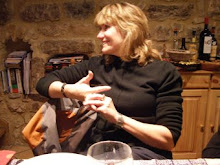 Before we begin, the Lovecats just want acknowledge what a heart-wrenching time this is for Christchurch, for Canterbury and for New Zealand. Our thoughts are very much with everyone affected by this tragedy.
Before we begin, the Lovecats just want acknowledge what a heart-wrenching time this is for Christchurch, for Canterbury and for New Zealand. Our thoughts are very much with everyone affected by this tragedy.
On a different note, we are very fortunate today to have my fabulous Superromance editor, Victoria Curran as our guest blogger. She has come to give us an insight into the editorial process from proposal to published novel, something every writer can benefit from!
Victoria, with proposals, what is the relationship between query letter, chapters and synopsis? Which do you read first?
Unsolicited proposals go through a freelance editor first and when his critique comes in, I check only to see his ultimate recommendation (contract, second read, reject with encouragement, reject—not
suitable for Superromance). Then I read the author’s sample chapters. After that, I read the synopsis to get an understanding of what the author had been trying to do with the chapters (the two don’t always match and that can be quite insightful!). I read the query letter briefly before I dig into the editor’s criticism. He assesses four areas: writing style, characterization, story inconsistencies and contrivances, and plot and conflict.
I know that other lines, such as Special Edition in our New York office, rely on query letters and synopses, without sample chapters, to decide if the author should submit the full—but our line doesn’t put much weight in query letters. We like to see how well the writer did what they set out to do in the opening of their book. If they excelled and the voice is fresh and the story meets our line’s requirement, then we ask for the full manuscript.
Do you know within the first page whether you like the voice? Are you always definite or do you land up with a lot of "maybes"?
I’ve heard editors say they can tell in the first sentence whether they like the voice or not. I’m not quite so skilled! (Although I do appreciate a good opening line.) I can usually tell the level of craft the author has immediately, which three chapters will confirm. But the strongest wordsmiths aren’t always the strongest storytellers, and the synopsis is key to indicating the writer’s grasp of structure and Superromance’s specific needs. I’ve seen charming stories with writing that flows, but there’s not enough romantic tension and unexpected choices, which means the romance falls flat.
Long story short: I end up with a lot of maybes where the writing isn’t the strongest but the story could work, or the writing is gifted but the story’s structure is weak. In these cases, I request a revision to check the author’s ability to grasp the kind of characterization and tension we need in a good Superromance. My favourite moments on the job are when I get a revision from an author that exceeds my expectations.

In the query letter, does the mention of competition wins help?
Sorry, but not with me, I’m afraid! The proof is in the pudding, as it were. I like to know if I’ve personally met the author at a conference pitch and I enjoy reading about the writer (having a web
site is almost a given nowadays), but ultimately it’s all about the execution of the work.
What is your process when it comes to giving authors feedback both on proposals and on fulls? Do you see this stage as clear guidance or a broad set of suggestions for the author?
I write margin notes as I read, which I then write up and e-mail the author—discussion to follow once they’ve had a chance to digest the notes. I like to step back from the work for a day or two after I’ve read a full so I can see the forest through the trees. If I have time, I structure my critique to point out any bigger issues first and then to follow up with the smaller stuff in chronological order.
I don’t necessarily care if an author hasn’t taken my previous suggestions to heart—but I do hope they’ve found a way to make the weak areas work. Ideally, I won’t even remember what I thought was a weak spot because it’s not weak anymore. But if I remember the weak spot—because it leaps out at me again—I keep at the author to find a different alternative than I’d previously suggested, to rethink it.
What are the common pitfalls for authors?
Wow, that’s a tough one. Often a main character’s motives aren’t urgent or active enough and that hero or heroine can seem too passive, not driven toward getting what he or she wants badly enough. This can happen when an obstacle to love only exists in the character’s internalization (they date, think they shouldn’t be dating…maybe because they have a secret the other doesn’t know about and they should really tell them, but they’re not going to quite yet…and then they date again) or when their life is in the pits when the book begins so they have nothing to lose in loving the other character, nowhere to go but up. And that lack of high stakes obstacle can lead to a less-than-exciting read because there’s no active romantic tension. (Much more exciting when both the hero and heroine have something precious they don’t want to lose at any cost, but loving each other might mean they have to lose it.)
Authors are urged to raise the stakes. How can we do this in contemporary romance?
In plotting where characters get to know each other, go out horseback riding or to dinner or to the pub or church fund-raiser, it’s much, much more difficult to reach the level of excitement and high stakes that you can—obviously—when there’s a villain with a gun chasing a heroine, or the hero and heroine are on a sinking ship…. The trick in writing contemporary fiction that’s grounded in reality and character-driven, is to make a scene about cooking dinner together as tense and risk-filled as a gun-to-the-head scene. I’m not saying it’s easy, but it’s necessary if you want a reader to keep turning the pages to find out what happens next! (And it shouldn’t be “on the nose” writing, where the scene really is about what the scene appears to be about…which vegetables the heroine will chop up for her stew and will the hero offer to set the table. There has to be deeper subtext and goals within a domestic scene, where one character comes away the victor from that dinner and the other comes away the loser.)
Do clichés abound?
I don’t know if it’s possible to write a cliché-free story (how many ways are there to say two people fell in love or one person broke another person’s heart?), and I’m even beginning to wonder what a cliché is anymore.
Simpler writing is often more truthful, more poignant, so “her heart broke” is a cliché that works for me if it flows naturally out of the story. It’s when an author relies too heavily on clichés and what I call “torturing” them to try to create something fresh (for instance, “shards of her broken heart seemed to pierce through her lungs so she couldn’t breathe”), that the cliché calls attention to itself and distracts the reader from the story.

Not sure if this falls under the category of cliché, but in trying to avoid adverbs (which have a bad rep nowadays), authors often write wordier adverbial phrases. “She said sharply” becomes “she said in a sharp tone”. In trying to write “more actively”, authors become convoluted and repetitive. “She felt cold” becomes “A cold wave swept through her middle”.
An editor will clean up clichés in a line edit, but I often point out the most glaring use of them in a revision letter so the author can choose how to clean them up herself without editor interference. But I would hate for a writer to get bogged down and unable to write their story because they’re worried about style. Write the story first, worry about clichés and repetitive phrasing after.
To what extent do you see the book as a collaboration between author and editor, given you know what Super readers are looking for?
It’s definitely a collaboration, but I never think “oh, that’s Zana and my book”— it’s only “Zana’s book” as far as I’m concerned. I have deep respect and admiration for authors’ creation process. All I do is critique and nudge! How easy do I have it???
Have you ever had instances where, despite author's efforts, they simply cannot produce what you feel is a publishable super?
Yes, and it’s a frustrating stage, for both the author and me. No matter how successful an author is within the line, there seems to come a time when a book they propose can’t get to contract. Hopefully we can find a way to work it out in a new proposal. Once a book is contracted, though, the story has been Superromance-approved and we’ve never rejected anything past that stage.
How closely do you like to work with authors at this stage? Do you bounce ideas around together or do you give suggestions and it’s up to the author to run with them?
Some editors are better at brainstorming ideas than others. I need to see words on a page, I’m not good at over-the-phone brainstorming. I’m also much better at editing ideas than generating them…guess that I was born to be an editor. I love to sit with Wanda Ottewell and “what if” back and forth. I find we’re able to let go of the original ideas more easily and see bigger-picture solutions than the author because we’re not as close to it.
The line edits are very exacting. Is it a tightrope walk?
I confess that the line edit stage isn’t much fun…and it’s utterly exhausting. But it’s also immensely satisfying to put the line-by-line work into a story and focus it into lean-and-mean fighting form. Once a line edit is done, that’s when I think, “That’s my favourite book ever”. And then I start the next line edit, cursing and grumbling until it’s over, and then it becomes my new favourite book. Wicked cycle.
The tightrope during a line edit is explaining your changes to the author without beating an author over the head! Saying too much in margin notes can put authors on the defensive. You’re talking about their creation, after all.
What keeps you in the job?
*Honestly? A steady pay cheque! But I also love working with words, always have, and I am devoted to seeing my authors get ahead.
How many novels are you working on right at this moment? How do you juggle them?
I’ve got a full that just came in for Harlequin American Romance; I’ve sent one author revision notes on her first book in a trilogy and have to read and get her notes on the second book soon. I have several unsolicited books to read (three fulls and about 15 partials), and proposals from three of my authors. We work at home one day a week, which is when I usually line edit or read a full. Otherwise, I juggle based on closest deadlines!
What can authors do to make their editors' lives easier?
Keep reading and studying the craft of writing. There are some excellent books out there, including Stephen King’s On Writing and Robert McKee’s Story. And keeping up with what other Superromance authors are writing certainly can’t hurt.
Thank you so much, Victoria, for sharing with us today. The glimpse into your world (the other side of the desk, as it were!) has been fascinating and invaluable.
Victoria will be happy to reply to comments or questions so please post away. However, be aware that, because of the time differences, you may have to wait until tomorrow for a response. Even super-busy editors have to sleep sometimes!
I will be giving away two copies of “Tempting the Negotiator” (Cataromance Reviewers Award 2010) in celebration of having such a great guest to the blog!
PS The photo at the top is Victoria with Beth Andrews, RITA winner.







































